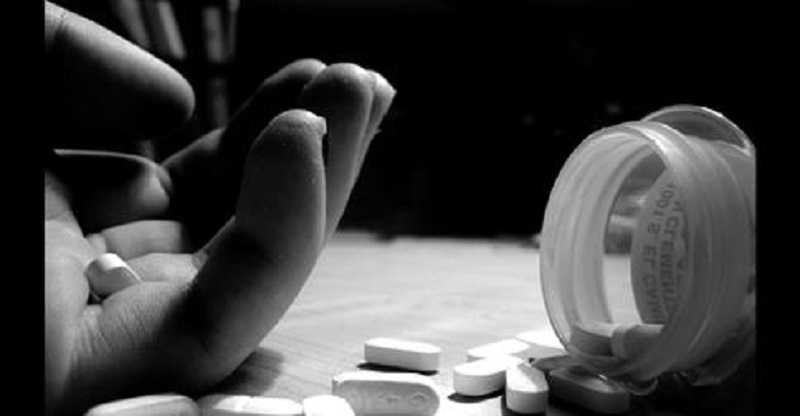Last December, Washington, D.C. Mayor Muriel Bowser signed into law legislation that legalized assisted suicide. The controversial bill faced heavy opposition, particularly from the African-American community in D.C., and with Bowser’s own health director openly speaking against it. But it didn’t dissuade Bowser, who still signed it into law, albeit without calling much attention to it. She didn’t even go so far as to release a statement.
After assisted suicide was legalized, Republicans began mounting efforts to get the law overturned, but were unsuccessful. The law officially took effect in February. But there are still people speaking out against it.
Dr. Grazie Pozo Christie wrote an op-ed in support of another effort to overturn the law, this time being spearheaded by Maryland Rep. Andy Harris, also a doctor, which Christie says comes as no surprise. “Some of the most ardent opponents of physician-prescribed suicide are doctors and nurses with plenty of experience accompanying patients through the shock of a terminal diagnosis and the struggle of the last months of life,” she said. “Becoming an agent of your own patient’s death is directly at odds with a vocation designed to prolong and enhance lives.”
Christie pointed out that we live in a time in which pain management and treatment for mental health disorders like depression are more effective and available than ever before. And she also explained the big lie behind the “death with dignity” movement: people aren’t actually seeking out assisted suicide because they are trying to avoid unspeakable pain.
“Doctors know that if a terminal patient is hurting so badly that death becomes preferable, what that patient needs is better pain control, not help killing himself,” she explained. “Doctors also know that most people who choose suicide do so because they are sad and lonely or don’t wish to be a burden on their families, not because of unbearable physical pain.”
“Trends documented in Oregon and Washington indicate that the most likely candidates for suicide are isolated, dependent, and chronically-ill seniors,” she continued. “The compassionate solution for the problem is hospice care, a rapidly growing field staffed by caring doctors and nurses who help their patients face the inevitable with dignity and grace.” Christie is correct; multiple studies have found that people requesting assisted suicide do so not out of fear of death or pain, but because they are typically struggling with a lack of family support, hopelessness, and depression. When those issues are addressed and treated, the request for suicide is often withdrawn.
One study, published in May by the New England Journal of Medicine, found that few people requested assisted suicide because they could not control their pain, or the symptoms of their disease. Instead, most sought assisted suicide due to a loss of autonomy, a fear of being a burden on others, or not being able to enjoy life.
Disability advocacy groups have also come out against the rise of assisted suicide, rightly claiming that it puts the disabled at risk. “The proposed legal safeguards around assisted suicide, they insist, ‘will not protect people with disabilities from abuse’,” Christie wrote. “In other words, when we create a ‘right to die,’ very soon we will find a ‘duty to die,’ felt first by vulnerable people who fear being a burden on their families and living in a society which devalues them.”
And the most vulnerable people tend to be those who are elderly, disabled, ill, or poor. This is precisely why African-American residents of Washington, D.C., so fiercely opposed the assisted suicide legalization. Christie is also not alone; others in the medical field have been speaking out against assisted suicide.
Dr. Joseph Marine is an associate professor of medicine in the cardiology division at Johns Hopkins Hospital in Maryland. He has publicly fought efforts to legalize assisted suicide in his state. He has argued that it will lead to the disabled and the ill to lose the protection they currently have under the law, and encourages abuse and coercion. And doctors, he argues, should not be encouraging their patients to die. “We should never give up on our patients. We should always want to be there for them, we always want to advocate for them and help them, in every way that the medical system can possibly help them,” he said. “I can understand fear, but the way the doctor should respond to fear is not to encourage suicide. It’s to encourage the value of life, to encourage patients to be helped, to help them in any way that we can, in the ethics of our profession.”
Others have begun to point out that abuses of assisted suicide are already happening in the United States. Dr. Brian Callister, a professor and physician at the University of Nevada Medical School, has come forward to expose some of those abuses. According to Callister, insurance companies are denying treatment for his patients, but offering to pay for their assisted suicide instead — even though his patients had expressed no desire to die. “Quite frankly, I was stunned,” Dr. Callister said. “This is something we didn’t talk about, we didn’t request, we didn’t ask for.” But then, it makes sense financially. “It’s a lot cheaper to grab a couple drugs and kill you than it is to provide you life-sustaining therapy,” Callister explained.
Such abuses have already been brought to light by others, such as Barbara Wagner and Stephanie Packer. “Patients are going to die because of this,” Packer insisted. “Patients need to know what this means, and the public needs to know that it’s going to kill these patients because they aren’t going to get the treatment they need to extend their life.” When insurance companies suggest assisted suicide, she continued, “it makes terminally ill patients feel ‘less than,’ that they are not worthy of that fight, that they’re not worth it.”
Christie, Marine, and Callister are right to oppose assisted suicide — all doctors should. Medicine is about saving lives, not taking them. And to allow a suicidal person to not only take his own life, but to help him do it, is not good medicine.








